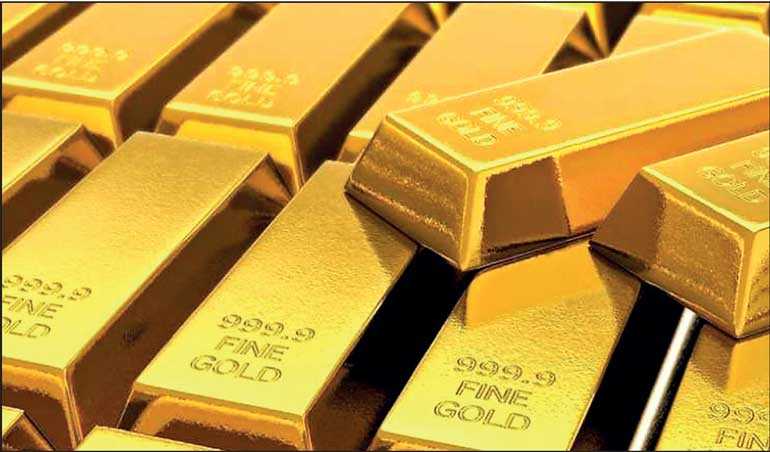Wednesday Feb 25, 2026
Wednesday Feb 25, 2026
Friday, 3 May 2019 00:00 - - {{hitsCtrl.values.hits}}

LONDON (Reuters): Strategic buying by central banks helped push global gold demand up 7% in the first quarter of 2019, the World Gold Council (WGC) said on Thursday.
Central banks seeking to diversify their reserves bought a total of 145.5 tonnes of gold over the January-March period, the WGC said in its latest quarterly demand trends report.
That is 68% more than a year earlier and follows purchases of 651.5 tonnes in 2018, which was the most in any year since 1967.
“Given the strategic nature of central bank buying, we expect the momentum to continue,” the WGC’s head of market intelligence Alistair Hewitt said, adding that he expected central banks to buy 500-600 tonnes this year.
The WGC said the world’s first quarter gold usage was 1,053.3 tonnes, up from 984.2 tonnes in the same period in 2018.Investors encouraged by political and economic uncertainty and the prospect of slower interest rate rises piled into gold-backed exchange traded funds, adding 40.3 tonnes to their holdings, 49% more than a year earlier, the WGC said.
Gold is traditionally seen as a safe place to invest in times of turmoil. Low interest rates make the metal, which does not offer a yield, more appealing relative to other assets.
Consumption of gold for jewellery rose 1% year-on-year to 530.3 tonnes, with a 5% rise in Indian demand to 125.4 tonnes – the most of any first quarter since 2015 – partially offset by a 2% fall in China to 184.1 tonnes.
China and India are the world’s largest jewellery markets.
Lower purchases of gold bars in China and Japan pushed overall bar and coin investment down 1% to 257.8 tonnes, although purchases in Britain rose 58% to 3.6 tonnes as investors looked to protect themselves against potential Brexit turmoil, Hewitt said.
Gold use in electronics and other industries fell 3% to 79.3 tonnes.
Hewitt said he expected China to use 900-1,000 tonnes of gold in jewellery, bars and coins this year, and India to hoover up 750-850 tonnes.
Gold supply in the first quarter was virtually unchanged from a year earlier at 1,150 tonnes, the WGC said.